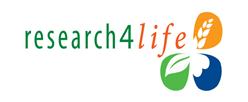Фахова підготовка вчителя початкової школи до організації діалогічного навчання учнів: теоретичний контекст
DOI:
https://doi.org/10.15330/jpnu.8.1.80-89Ключові слова:
підготовка майбутнього вчителя початкової школи, професійно-педагогічна готовність, діалогічна освіта, діалогічне спілкування, комунікативна культура вчителя, педагогічна етика в спілкуванніАнотація
У статті обґрунтовано актуальність проблеми підготовки майбутнього вчителя початкової школи до діалогічного навчання учнів з урахуванням сучасних викликів глобалізації та цифровізації освіти. Наголошено на суперечностях, що мають місце в практиці професійної підготовки фахівців у педагогічних університетах. Висвітлено теоретичний аспект окресленої проблеми. Подано характеристику змісту таких понять: діалогічне навчання, навчальний діалог, діалогічне спілкування, педагогічне спілкування, комунікативна культура вчителя, мовний етикет та ін. Представлено результати проєктування складових педагогічної майстерності вчителя як особистісно-професійні чинників успішної організації діалогічного навчання в школі. Доведено, що організація діалогічного навчання в школі потребує сформованості у педагога системи умінь, а саме: організувати та управляти діалогічним процесом у навчанні; створювати позитивну комунікативну атмосферу для обміну думками, ідеями; педагогічно доцільно здійснювати стимулювання спілкування учнів; застосовувати прогресивні діалогові технології навчання; мотивувати школярів до створення чи вирішення проблемної навчальної ситуації шляхом продуктивного діалогу; ефективно використовувати засоби вербальної і невербальної комунікації; здійснювати емоційний контакт і слухати співрозмовника тощо. Пропагується стратегія комунікативного підходу в освітньому процесі педагогічного університету, передусім у вивченні дисциплін гуманітарного циклу. Автор зазначає, що готовність майбутніх учителів початкової школи до організації продуктивного навчального діалогу детермінована не лише рівнем розвитку комунікативних здібностей і вмінь, а й інших якостей особистості: інтелектуальні якості, мотивація до педагогічної діяльності, любов до дітей, емоційна рівновага, емпатія, толерантність, професійна відповідальність, високий рівень моральної культури, готовність до інноваційної діяльності, прагнення до самовдосконалення і самоосвіти та ін.
У статті частково використано авторські матеріали дисертаційної роботи “Підготовка вчителя початкової школи до організації діалогічного навчання” на здобуття доктора філософії (2020).










